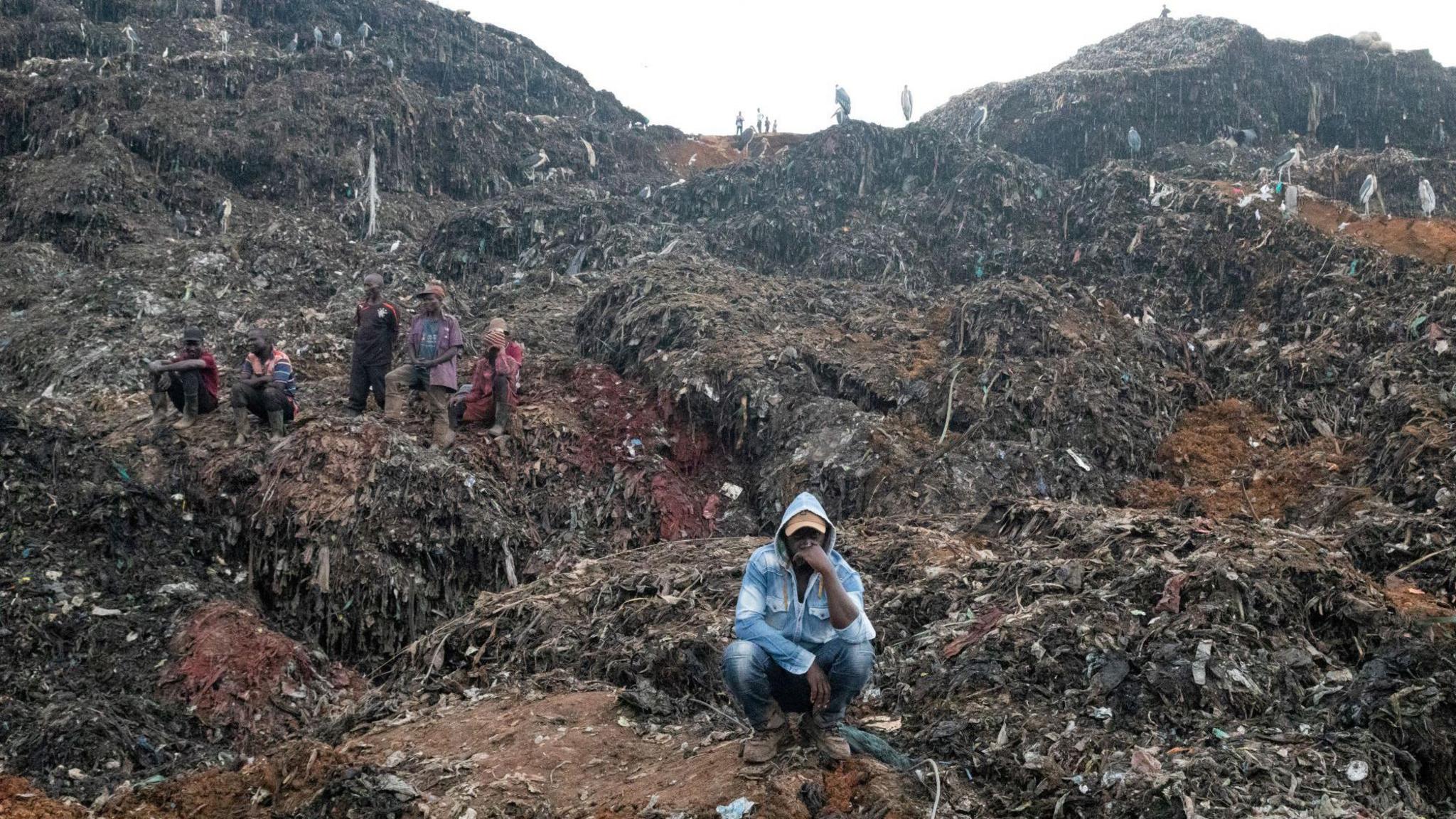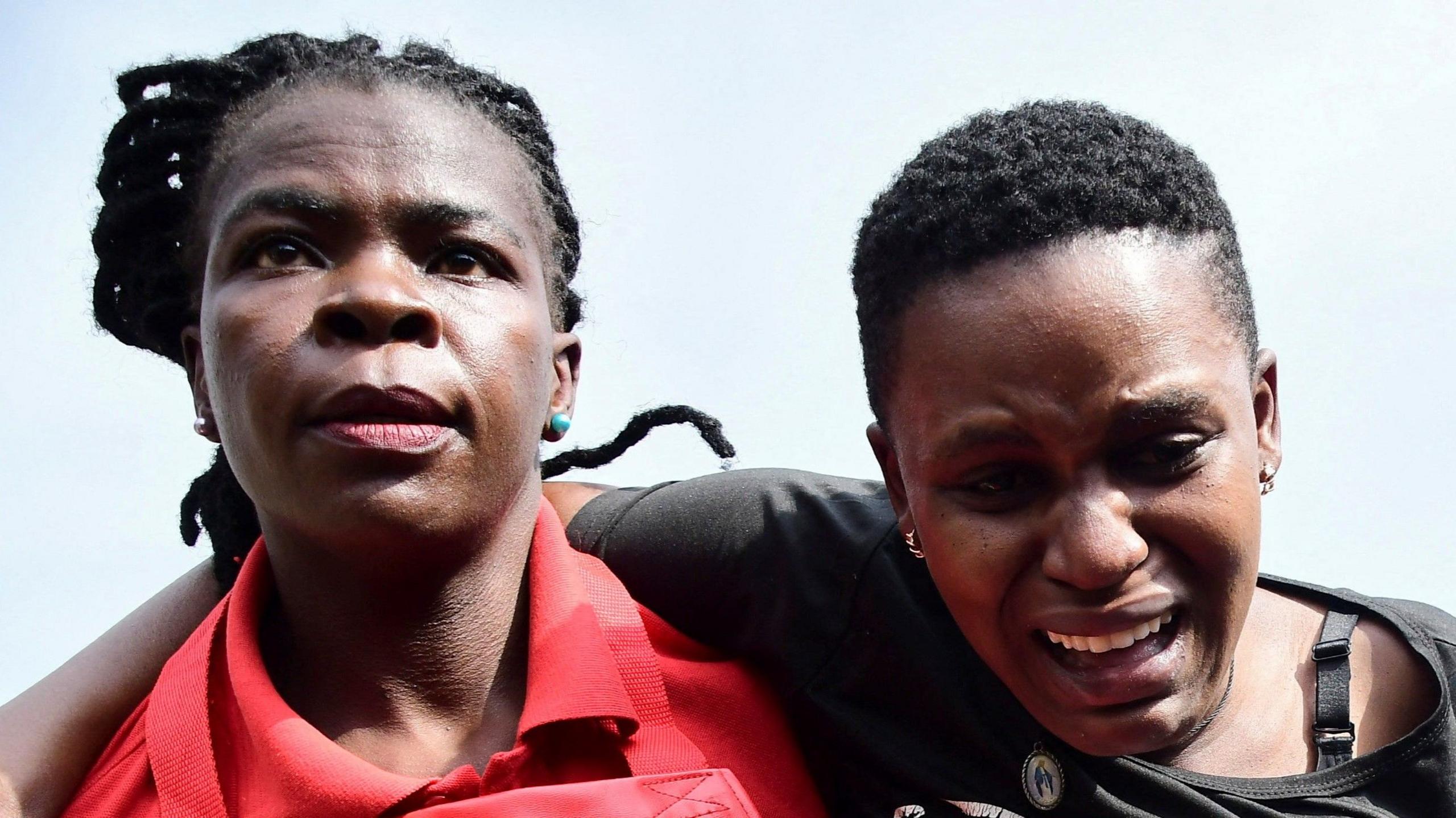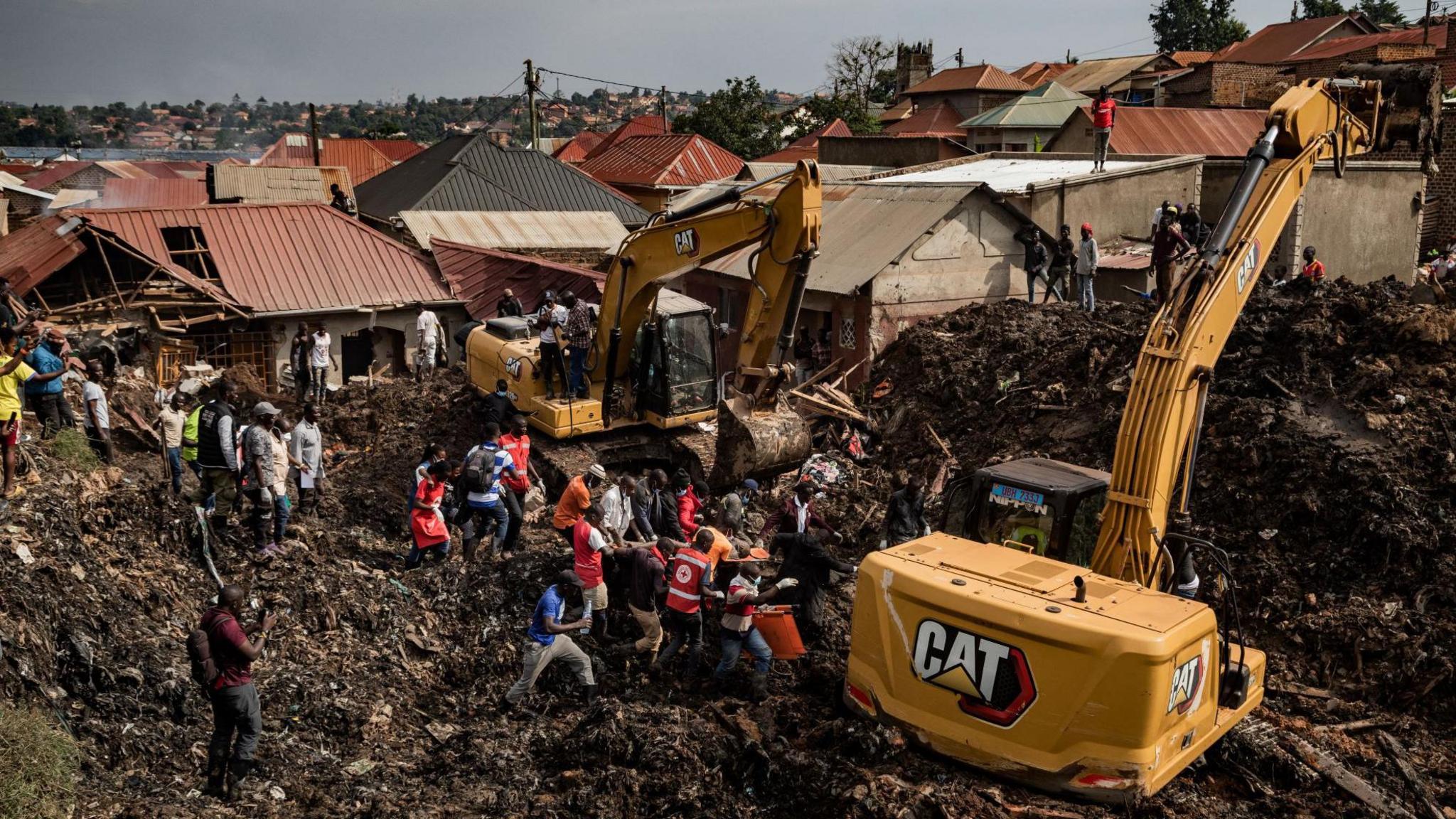Landslide at Uganda rubbish dump kills 21

Many people earn their living by trawling through the rubbish looking for anything that can be resold
- Published
At least 21 people are now known to have died after a landslide at a massive rubbish dump in the Ugandan capital, Kampala, police have said.
Rescuers are continuing to dig through the waste in the hope of finding more survivors after the landslide, which followed weeks of torrential rain.
The 36-acre (14-hectare) Kiteezi landfill is the only one serving the whole of Kampala, a city home to an estimated four million people.
Kampala Mayor Erias Lukwago told the AFP news agency it was "a disaster [that] was bound to happen", and that "many, many more could be still buried".
The city authorities have reportedly been trying to find a new site for many years.
A huge hill formed by the build-up of rubbish collapsed late on Friday night, burying houses on the edge of the site while residents were asleep, reports the Reuters news agency.
President Yoweri Museveni has ordered an investigation into how people had been allowed to live so close to the "potentially hazardous and dangerous heap", and ordered the removal of those in what he called the "danger zone".
On Monday morning, a spokesperson from the national police force said 21 bodies had been retrieved, four of which were children.
Kampala police spokesman Patrick Onyango told AFP on Sunday that 14 people had been rescued.
"The rescue operation is still ongoing until we are sure no-one is trapped," he said.
Mr Onyango said that some 1,000 people had been forced to leave their homes because of the landslide. He did not specify how many had been living on the site, or whether they were living nearby.
Many people earn their living by trawling through the piles of rubbish looking for anything that can be resold.
The Uganda Red Cross has been providing tents to those in need of temporary shelter.

Some 1,000 people have left their homes because of the landslide

The authorities fear that some people may still be trapped under the rubbish
More Uganda stories from the BBC:

Go to BBCAfrica.com, external for more news from the African continent.
Follow us on Twitter @BBCAfrica, external, on Facebook at BBC Africa, external or on Instagram at bbcafrica, external